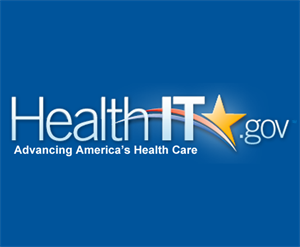Apr
24

Posted by Margot M on April 24th, 2020
Posted in: Communities of Interest
Tags: Health IT, hospital librarians, patient empowerment
 With work travel prohibited while our country copes with COVID-19, I am looking for alternative professional development opportunities to help me understand my role in empowering health information outreach in New England. To catch up on Health IT, I dedicated one day to watching this recorded webcast of the 2020 ONC Annual Meeting on Connecting Policy and Technology: Bringing the EHR to the Patient. I want to share my takeaways, and I encourage you to view the recordings yourselves.
With work travel prohibited while our country copes with COVID-19, I am looking for alternative professional development opportunities to help me understand my role in empowering health information outreach in New England. To catch up on Health IT, I dedicated one day to watching this recorded webcast of the 2020 ONC Annual Meeting on Connecting Policy and Technology: Bringing the EHR to the Patient. I want to share my takeaways, and I encourage you to view the recordings yourselves.
One of the most thought-provoking sessions focused on Unique Patient Identifiers (UPIs). The panel discussed the inconsistencies of requiring identification in general–for example, comparing air travel to Amtrak. They talked about the difficulties of merging data for prescription refills when not all data fields match. This led to a discussion on the importance of clean data and using standards, such as the United States Postal Service standard for street addresses. Several issues cropped up. We need front desk staff to standardize data entry in order to improve interoperability. Dual authentication is a critical part of patient verification (“is this you?”). At the same time, IT developers acknowledge that not all patients have smartphones or computers.
Congressman Bill Foster (D-IL) gave an excellent 15-minute talk on The Congressional Perspective on Unique Patient IDs. He spoke about the bipartisan agreement to lift the ban on federal funding for the development of a national patient identifier that is similar to the Social Security Number. The most compelling argument for having UPIs is short-circuiting “shopping for doctors” so that patients will not be able to get multiple opioid prescriptions. The substance use disorder crisis touches every part of our nation.
U.S. Health and Human Services Secretary Alex Azar gave the Morning Keynote. He began by apologizing for being late to the event. He was delayed by a phone call to China’s Minister of Health as well as a call with the Director General of the World Health Organization. This was on January 28, 2020. At that point, the United States had five confirmed cases of COVID-19. Secretary Azar went on to speak about the 21st Century CARES Act. He is passionate about improving the patient’s experience of health technology, referring to his own frustrations with trying to gain access to his own health records. “And, I’m the Secretary of Health and Human Services!” he exclaimed.
The Balancing Patient Privacy with Data Access panel is worth watching. Comprised of patient advocates, this discussion was the most patient-centric. The panelists took on the topic of control. Patients want access to their health records. Caregivers need access. Patient concerns over privacy are overwhelmed by the need to understand a cancer diagnosis. They want information because they are trying to survive. For patients, the lack of transparency is more problematic than the lack of privacy.
I took one day to get updated on Health IT. I heard from experts in the field from the comfort of my own home. The webcasts are excellent. In May, I plan on watching the NIH Webcast on Maternal Mortality. The key having a successful conference-at-home-day is to close my email and turn off my phone. I miss the opportunity to talk with colleagues over coffee, but I don’t need to miss out on the learning.